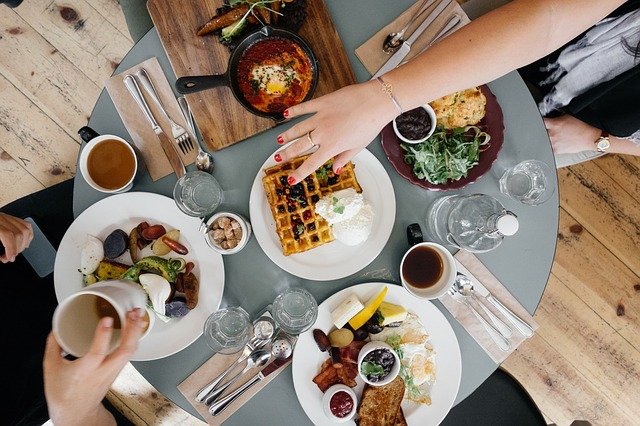
In a new study, researchers found that people who have leftovers—especially when it’s considered a large portion—leave feeling happy with themselves.
And this sense of accomplishment causes people to eat more and exercise less afterward.
As a result, having leftovers might actually trick people into overindulging.
As portion sizes have grown larger and larger in the U.S., lots of restaurant-goers have taken it upon themselves to consume less, boxing up half and taking the leftovers home.
The researchers were curious how ballooning portion sizes and leftover culture changed how people viewed consumption.
Previous research showed that if portions go up 100 percent, consumers only increased their eating by 35 percent.
In the current study, the team found that cookies were effective to test out their research.
Two sets of participants were given two different sizes of cookies. Some participants were given large cookies and the other set were given small cookies.
Both were told to only eat a specific portion of the cookie and because of that, people in both groups ate the same amount of cookie. It was the leftover amount that differed.
Then, after that first task, they were offered a bag of 10 small cookies. They were told they could eat as many as they wanted.
The researchers found that the participants who ate the bigger cookie ate more from the bag than those who ate the smaller cookie.
Some might assume the opposite would happen—that people who ate the smaller cookie should be inclined to eat more, right?
But it comes down to proportion. The participants who ate the larger cookie had a larger amount leftover than the participants who had the smaller cookie.
This left the small cookie group thinking they had consumed nearly an entire cookie. For the large cookie participants, they felt they had left a lot of cookie on the table.
After the cookie consumption, the researchers wanted to know how it might impact their health in other ways, like exercise.
They asked the participants to go on an exercise machine—a stair stepper—and exercise as long as they thought it would take to burn off the cookie.
Once again, the participants who ate the smaller cookie exercised more.
The result highlights that really big portions are a big problem for two reasons.
First, people eat more from large portions to begin with, and second, their research shows that it also changes what you do after the meal.
If people ate a smaller portion and finished it completely and didn’t see leftovers on their plate, they might eat less to begin with and, weirdly, might feel more satiated.
While taking lots of leftovers home might feel like a win, this research now shows you might end up losing later.
The study is published in the Journal of Experimental Social Psychology.
Copyright © 2018 Knowridge Science Report. All rights reserved.
Source: Journal of Experimental Social Psychology.



